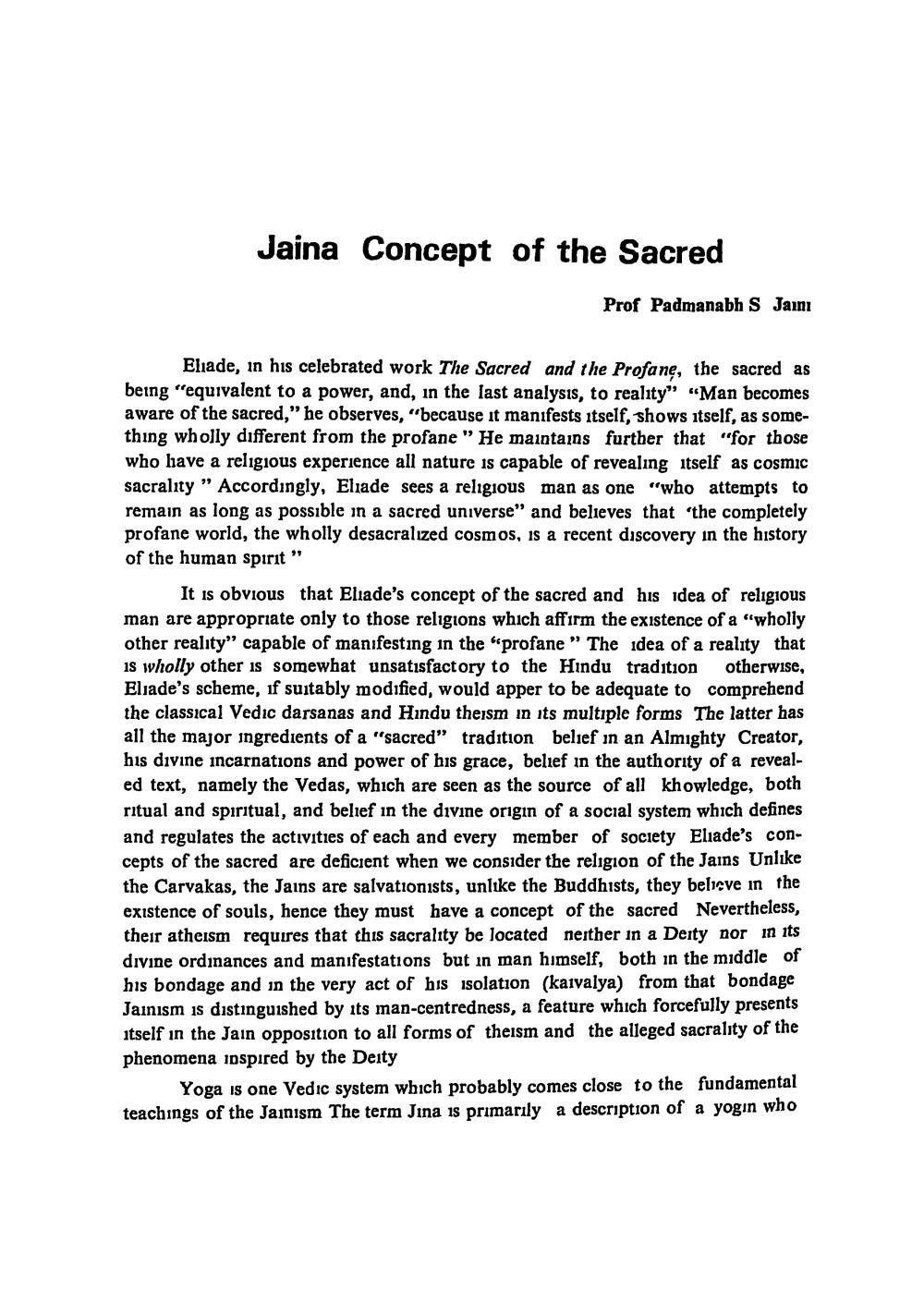________________
Jaina Concept of the Sacred
Prof Padmanabh S Jaini
Eliade, in his celebrated work The Sacred and the Profane, the sacred as being "equivalent to a power, and, in the last analysis, to reality" "Man becomes aware of the sacred," he observes, "because it manifests itself, shows itself, as something wholly different from the profane" He maintains further that "for those who have a religious experience all nature is capable of revealing itself as cosmic sacrality" Accordingly, Eliade sees a religious man as one "who attempts to remain as long as possible in a sacred universe" and believes that the completely profane world, the wholly desacralized cosmos, is a recent discovery in the history of the human spirit
It is obvious that Eliade's concept of the sacred and his idea of religious man are appropriate only to those religions which affirm the existence of a "wholly other reality" capable of manifesting in the "profane" The idea of a reality that is wholly other is somewhat unsatisfactory to the Hindu tradition otherwise, Eliade's scheme, if suitably modified, would apper to be adequate to comprehend the classical Vedic darsanas and Hindu theism in its multiple forms The latter has all the major ingredients of a "sacred" tradition belief in an Almighty Creator, his divine incarnations and power of his grace, belief in the authority of a revealed text, namely the Vedas, which are seen as the source of all khowledge, both ritual and spiritual, and belief in the divine origin of a social system which defines and regulates the activities of each and every member of society Eliade's concepts of the sacred are deficient when we consider the religion of the Jains Unlike the Carvakas, the Jams are salvationists, unlike the Buddhists, they believe in the existence of souls, hence they must have a concept of the sacred Nevertheless, their atheism requires that this sacrality be located neither in a Deity nor in its divine ordinances and manifestations but in man himself, both in the middle of his bondage and in the very act of his isolation (kaivalya) from that bondage Jainism is distinguished by its man-centredness, a feature which forcefully presents itself in the Jain opposition to all forms of theism and the alleged sacrality of the phenomena inspired by the Deity
Yoga is one Vedic system which probably comes close to the fundamental teachings of the Jainism The term Jina is primarily a description of a yogin who




